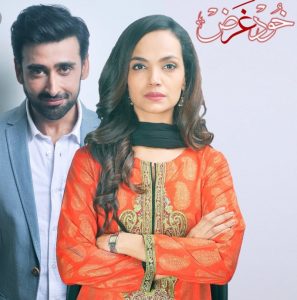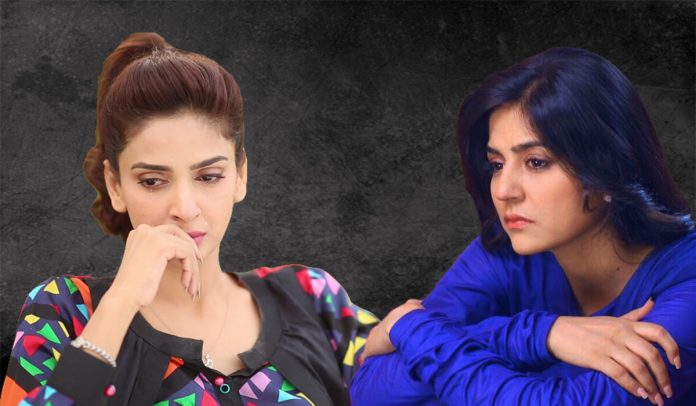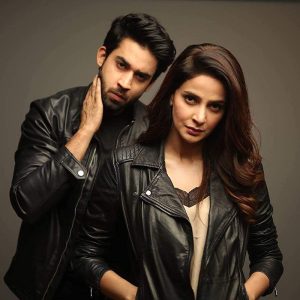The not-so-Khaas ending
In Khaas, Saba (played by Sanam Baloch) spends the entirety of the script crying over one injustice or another. When Ammar divorces her, it seems to be the breath of fresh air she needs in life. After her marriage to Faakhir (Haroon Shahid), the drama features a happy period for Saba but even that is filled with foreboding omens and messages signaling Fakhir’s early demise. The last episode shows Faakhir’s death, Saba having a child and rejecting her previous husband Ammar’s (Ali Rehman Khan) proposal.
While this was a satisfying ending, what with Saba not remarrying Ammar (Shukar Alhamdullilah!), the question remains that why was it necessary to kill off Faakhir in the first place and give Saba that lasting sadness. She was already given the character boost she needed, so it seemed like an extra kick in the gut.
Cheekh-ty Mannat
Khaas is definitely not the exception, rather such endings are more of the norm. The blockbuster drama Cheekh saw a similar ending, with Mannat (Saba Qamar) winning the case against Wajih (Bilal Abbas Khan) but losing her husband and unborn child as collateral damage.
Shayan (Emaad Irfani) was a good, supportive husband who had women all over the country swooning. Mannat was finally in a place with some semblance of happiness and it was taken away, quite cruelly.
I understand that the losses were somewhat necessary to show how evil Wajih was but once again, the ending left behind a sour aftertaste with a strong woman who’d lost her all in the pursuit of justice. It left us wondering if Shayaan’s death and Saba’s bereavement was really all that necessary?
The other woman in Aangan
ARY’s Aangan featured a complex but happy family. Asim (Hassan Ahmed) was also a supportive and loving husband to his wife, Laila (Iffat Umer). Laila plays a strong woman who is not really in her in-laws’ good books but she always has her husband backing her up.
That story also left a shattered woman behind when it was revealed that Asim had a secret second wife.
 Redemptive arc ki Khudgharzi
Redemptive arc ki Khudgharzi
Khudgarz also has a poor husband dying simply because he was responsible for his wife’s happiness. I phrase my sentence as such because Junaid (Syed Jibran) is shown to be a good husband who makes his wife Ayera (Amna Sheikh) happy and yet, he is killed off just so Hassan can get an unnecessary redemptive arc. That too, on the eve of his child’s birth, with a measly heart attack.
His death turns the strong psychologist Ayera into an emotional wreck and addict who dies two episodes before the drama ends.
Final Word
These dramas just make up the surface layer of an industry based on stories featuring tormented, crying women. While the serials do provide an insight into societal issues and provide some semblance of closure, the question remains – can’t we just have dramas ending on a happy note? Without deprived women and unnecessary deaths. One can only hope.





